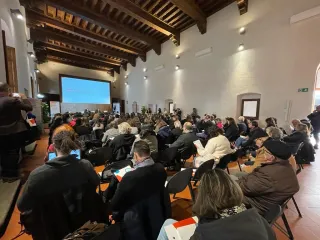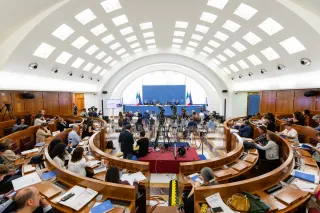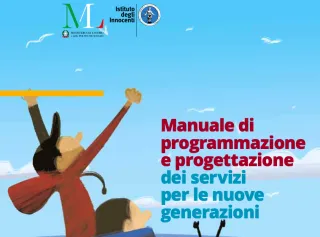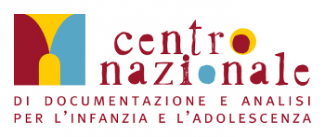Family Centres in Tuscany, the Future Looks to 'Relational' Services
A conference at the Istituto degli Innocenti on proximity networks and development prospects
11 December 2023
Area di attività
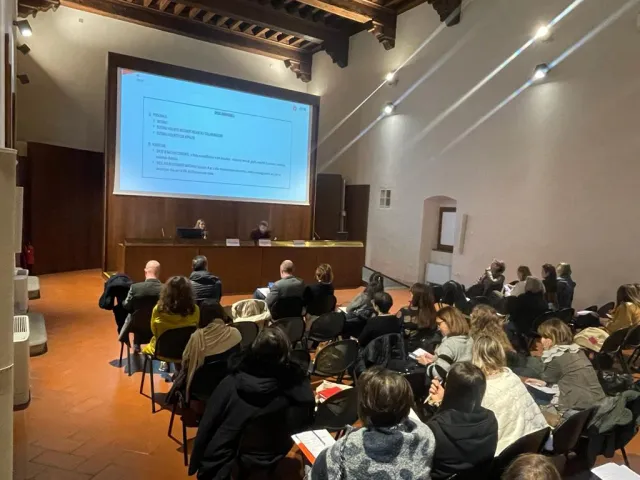
Family Centres are welcoming places designed to develop activities and initiatives in the field of family policies, with a focus on creating new forms of support for parents' care tasks and educational commitments. Family Centres began to develop at the end of the 1980s as services close to families, with the aim of establishing a permanent point of reference and a place to prevent and care for family fragilities. In addition to providing information and guidance on the system of interventions aimed at minors and families, these centres also offer parenting support services, family mediation, counselling and services of a “relational” nature, i.e., services to promote socialisation and sharing activities.
The relational needs of families were explored through the pilot survey carried out by the Regional Documentation Centre for Childhood and Adolescence, in collaboration with the Region of Tuscany, on the “proximity networks”, i.e., the potential relational resources that an individual is able to draw on to meet a need. According to initial evidence, “separated” families and families with predominantly “non-working” parents are the types of users for whom the proximity network is most effective. Families who use relational services at family centres also receive suitable support from the networks they belong to. This evidence, therefore, means that there is an opportunity to invest in implementing Family Centres according to the criteria defined by the Shared Family Centre Model whose aim is to meet the needs of the person, especially in relational terms.
The results of the research and the future prospects of Family Centres were the focus of the conference entitled “I centri per le famiglie: dai dati emersi al confronto aperto” (Family Centres: from Data to Open Discussion) held on 11 December at the Istituto degli Innocenti in Florence. The event was organised with the aim of promoting, thanks to the resources of the Fund for Family Policies for 2023, integrated pathways involving the social services of the municipalities and the social-health services of the 28 district areas and Tuscan Health Companies that deal with childhood, adolescence and parenting in all their forms in the region.
Conference “Family Centres: from Data to Open Discussion”
During the day, both the planning of the 2023 Fund and the operational guidelines for the development of local projects financed under the 2023 Family Policies Fund, starting with the recently approved Regional Council resolution, were discussed. Details were given as to when and how funds would be managed.
The morning session also focused on the importance of the twinning between Tuscany and Emilia Romagna, which took place within the framework of the Project "Support for the development of family centres and the coordination of interventions in the field of protection and social inclusion services for multi-problem families and/or particularly disadvantaged persons". In the afternoon, the district areas were the protagonists of a round table discussion on the design of Family Centres, during which several local experiences were presented in order to outline and share good practices and criticalities encountered in their areas during the implementation of the shared Family Centre model.
Evidence from the Proximity Networks Survey
Proximity networks are about potential relational resources that an individual is able to draw on to meet a need and can be quantified in terms of “social capital”. A sample of 60 families attending the 13 Family Centres operating in Tuscany were given a questionnaire through which information was collected on four types of needs, namely material, information, time and symbolic resources, and on the support networks available, i.e., relatives, parents of children's schoolmates, work colleagues, neighbours, friends, people known in associations or institutions. On the basis of the data collected, four indicators (trust, reciprocity, breadth, help received) were calculated and made it possible to define an index of “social capital”. Compared to the average value of the social capital index (5.2), higher values are recorded among the categories of “separated” households (5.6) and households with predominantly “non-working” parents (5.5).
Last update: 01/24/2024 - 15:43

